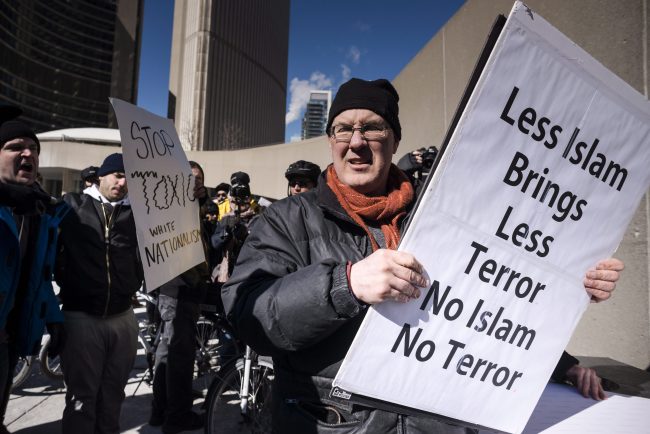It was supposed to have been the end of Canada as we know it, but as it turns out, it was merely the end of a foolish and contrived narrative.

Under normal circumstances, a mundane Commons committee report would hardly be worth a mention. And indeed, the report released Thursday by the Standing Committee on Canadian Heritage struggled to garner much media attention. This particular report, however, is the culmination of a process that many had warned would usher in a new era of government censorship and even potentially Islamic Sharia law. It was always a laughable proposition, and the report lays bare just how irrational and conspiratorial this whole panic truly was.
It all began nearly a year ago with M-103, a private members motion put forth by Liberal MP Iqra Khalid and subsequently passed by the House of Commons. The motion came on the heels of the horrific slaughter of six Muslims inside a Quebec City mosque and was intended to call attention to the problem of “Islamophobia.” Reasonable people can debate to what extent Islamophobia exists in Canada or whether the word itself is too vague (for example, “anti-Muslim bigotry” might have been preferable), but the reaction to M-103 was anything but reasonable.
The motion called on the government to “condemn Islamophobia and all forms of systemic racism and religious discrimination,” and tasked the aforementioned Standing Committee on Canadian Heritage to study the extent of the problem and how it might be addressed. M-103 was not a piece of legislation, and nowhere did it propose any new laws or changes to existing laws.
Much of the reaction failed to make the obvious distinction and assumed that Canada had somehow banned criticism of Islam or anything else that might remotely be considered “Islamophobia.” Others saw the motion as merely a prelude to the committee report, which would surely recommend sweeping new censorship powers, and sacrifice the noble principle of free speech in some vague and politically correct crusade against Islamophobia.
WATCH BELOW: Protestors clash across Canada over anti-Islam motion M-103

This was not merely coming from the political fringes, either. These hysterical warnings were coming from otherwise respectable commentators in mainstream publications. There were anti-M-103 protests in various cities across the country. Some Conservative leadership candidates even participated in a rally against M-103, where some of the most alarmist conspiracy theories were prominently on display.
And now, suddenly, the whole narrative lies in ruins. Nothing changed when the motion was passed, and nothing will change now that the committee has issued its report. There are no recommendations for banning criticism of Islam, no calls for a new blasphemy law or Sharia law. There is nothing in this report that is remotely close to the dire warnings we’ve been hearing for months.
- As Canada’s tax deadline nears, what happens if you don’t file your return?
- Posters promoting ‘Steal From Loblaws Day’ are circulating. How did we get here?
- Video shows Ontario police sharing Trudeau’s location with protester, investigation launched
- Drumheller hoping to break record for ‘largest gathering of people dressed as dinosaurs’
Frankly, touting the existence of a clandestine Muslim-led plot to undermine our basic freedoms was always a very strange way of arguing against an examination of anti-Muslim bigotry.
In fact, of the 30 recommendations in the report, the vast majority have nothing to do with Islamophobia. It calls for Jan. 29 — the anniversary of the Quebec City mosque massacre — to be “designated as a National Day of Remembrance and Action on Islamophobia, and other forms of religious discrimination,” and that the government should “actively condemn systemic racism and religious discrimination including Islamophobia.” That’s it as far as “Islamophobia” goes.
The rest of the recommendations deal with other government anti-racism initiatives, better collection of hate crimes data, promoting media literacy, and issues related to indigenous Canadians. In other words, it’s just the sort of report you’d expect to get from a government committee.
Unfortunately, not only did many opponents of M-103 play right into the Liberals’ hands on the issue, those who cried wolf have also made it less likely that legitimate concerns about free speech will be taken seriously in the future. We may face such a situation if the Liberals are indeed serious about undoing changes made in 2013 to the Canadian Human Rights Act.
Canadians should, of course, be free to criticize or condemn Islam — or any and all other religions, for that matter. The demise of Canada’s actual blasphemy law is a step in the right direction.
But M-103 was never a serious threat to that freedom, and those who claimed otherwise should be embarrassed.
Rob Breakenridge is host of “Afternoons with Rob Breakenridge” on Global News Radio 770 Calgary and a commentator for Global News.








Comments